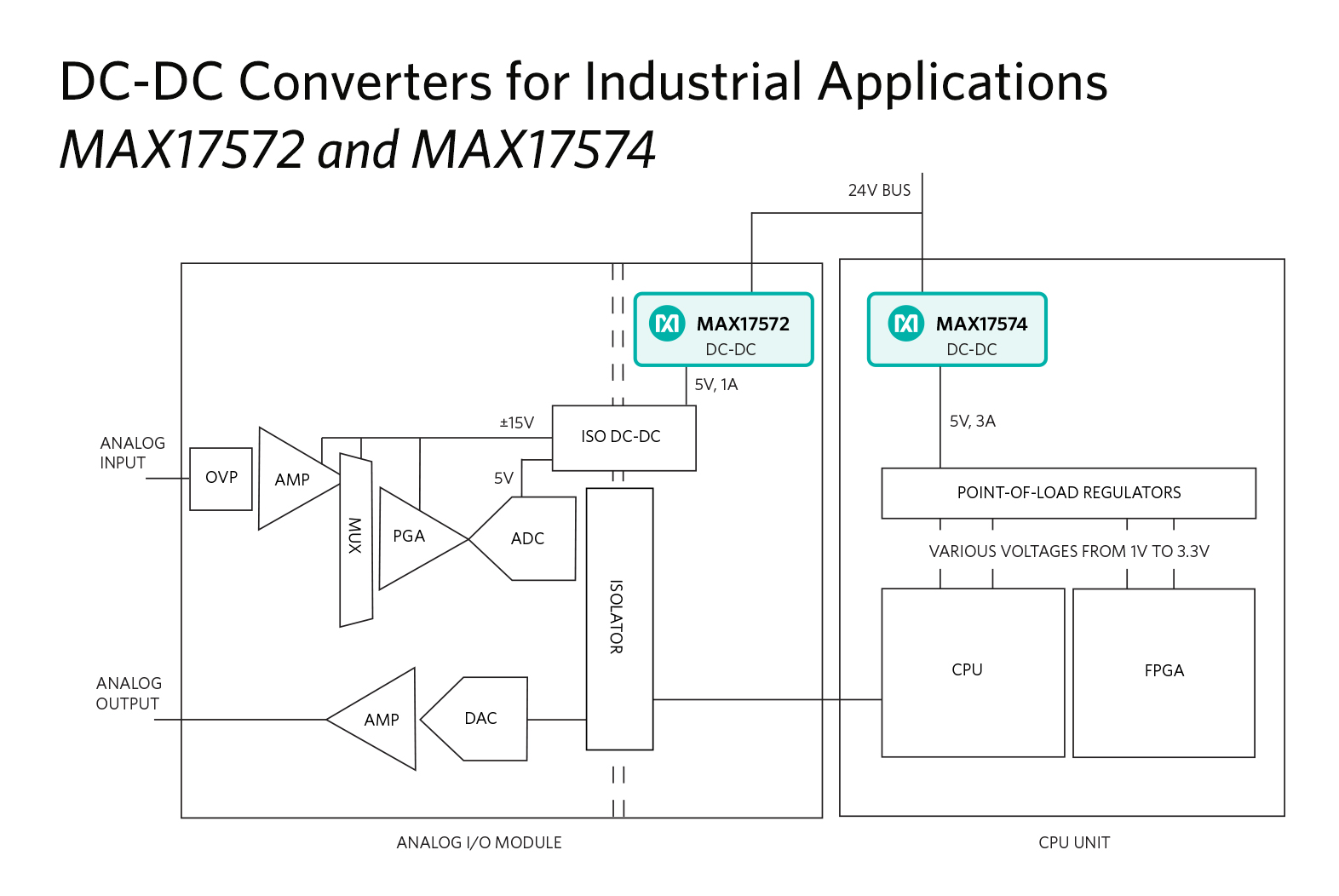Step-down converters reduce power dissipation by 40%
In order to achieve long-term system reliability, system architects can now rapidly comply to International Electrotechnical Commission (IEC) and safety integrated level (SIL) standards with the MAX17572 and MAX17574 Himalaya synchronous step-down DC/DC converters from Maxim Integrated Products. The company claims that these converters provide a 40% reduction in power dissipation and shrink solution size by 50% compared to other solutions.
The industrial market is digitising at a rapid pace, all while continually improving the safety, performance, and intelligence of systems. Tasked with deploying processors from sensors to control units, designers must reduce power dissipation while managing space constraints. They are also hard-pressed with thermal challenges and meeting safety standard regulations - critical to robust long-term reliability, yet very time consuming. In addition, designers must account for high voltage transients up to 60V on a 24 or 48V bus.
With Maxim’s MAX17572 and MAX17574 DC/DC converters, designers can operate 4.5-60V as well as reduce power dissipation and solution size compared to other solutions to rapidly comply with the IEC 61508 safety standard. The converters guarantee 1 and 3A operation (5V output) and are suitable for high voltage industrial applications such as sensors, programmable logic controllers (PLCs), industrial controls, distributed supply regulation, and factory/building/power grid automation. They are also applicable for battery back-up, Power-over-Ethernet (PoE), and data centres. Operating over the -40 to 125°C temperature range, the MAX17572 is available in a 12-pin, 3x3mm thin-DFN (TDFN) package and the MAX17574 is available in a 24-pin, 4x5mm TQFN package.
Key features:
- High efficiency: Delivers more than 90% efficiency across 50-100% of the load current
- Small solution size: Integrated MOSFETs and compensation reduce solution size; Operates at high-switching frequency with low minimum on-time
- Ease of use: Internal compensation addresses any output voltage and switching frequency combination without compromising bandwidth for rapid design
“Industrial equipment’s control power supply inputs must meet 60V input and low thermal dissipation for reliable operation and standards compliance,” said Andreas Kuhn, Head of Hardware Development, Drives Chemnitz, Siemens AG. “With Maxim’s Himalaya DC/DC converters, we can consistently meet our requirements for the SINAMICS Drives Family.”

“Maxim was the first to bring synchronous rectification at 60V to the market,” said Viral Vaidya, Executive Business Manager at Maxim Integrated. “Today, we continue this innovative approach by delivering 40% lower dissipation even against competing synchronous solutions.”











